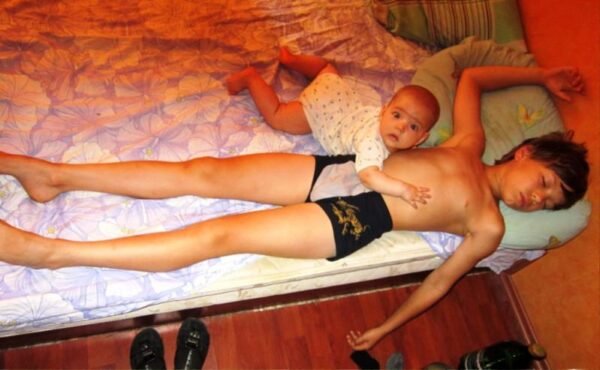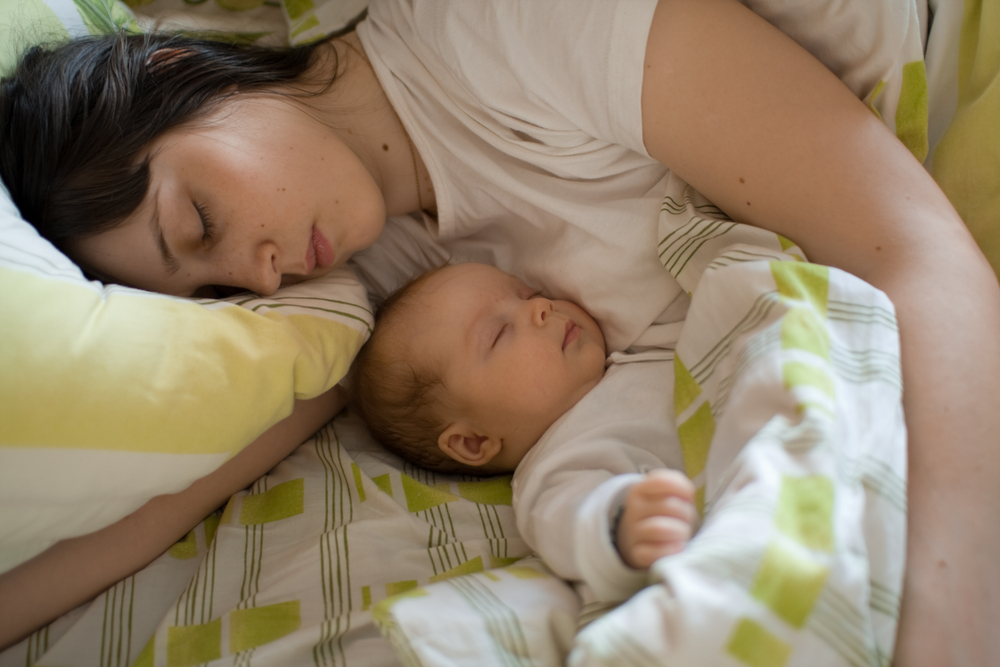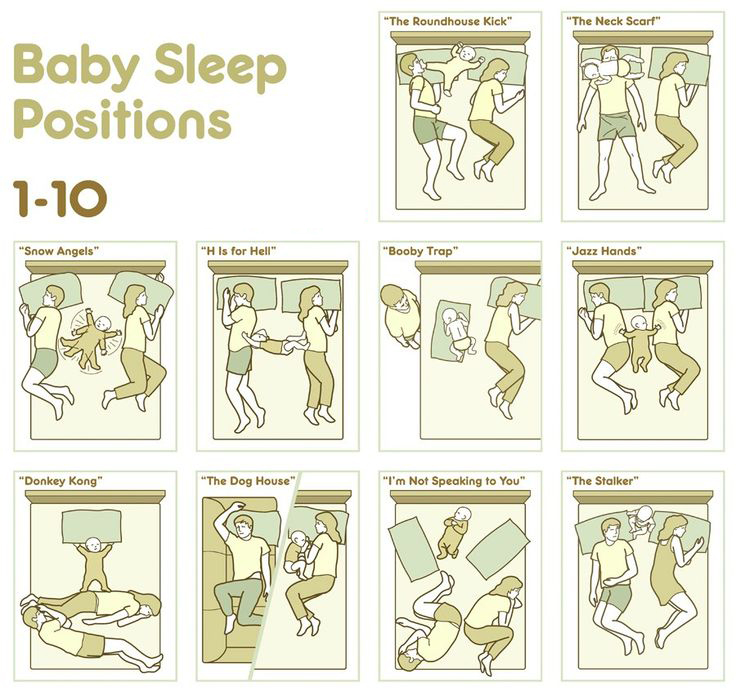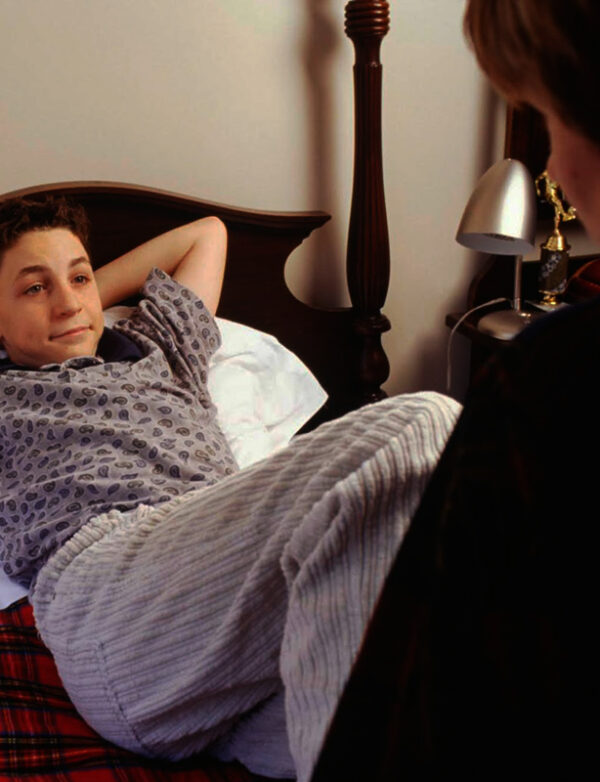Parenting: A Good Night’s Sleep, Infant Sleep Training
We’re talking here about parents getting a good night’s sleep and we’ve already laid some extensive background in part one and discussed that good infant sleep IS possible but doesn’t come “naturally” by any means. Pretty much, by the time you’ve figured how to do it easily you’re done with having kids.
Additionally, part of that learning is coming to an awareness of how “touchy” How NOT to get a good night’s sleepa subject infant sleep parenting skills are for people while THEY are learning it; which, makes it quite a dilemma: do I share the secrets or just smile and commiserate to avoid any “hot spots?”
Last time we began with three global concepts so now are listing a few basic facts we’ve learned through research and we’ll end with some time-revealed parenting tips if we haven’t covered everything.
To refresh, the concepts are that: NOT sleeping through the night is no accident; sleeping THROUGH the night is no accident either; and, good sleep begins with deciding and defining.
Facts About Infant Sleep

The facts we’ve discussed so far in previous posts are: Fact: There’s a 2 hour minimum feeding interval; ALL babies cycle awake through the night; the “jig is up” at 5 months; and, long sleep is not the same as good sleep.
Let’s continue now with the “data dump” of the various observations, experiences, rules and tips which are rattling around in my head that I would draw from for our talk if you were sitting in my exam room, exhausted from lack of sleep, and I was trying to offer help without tripping any of your “hot spots” which might cause you even more distress or guilt. Yet again, once more into the breech my friends.
Fact: An Unbelievably Massive Range of Infant Sleep Habits Are Possible
Without even trying we can observe that babies inhabit almost every nook and cranny of space on the earth right along with their parents — hot, cold, quiet, loud, crowded, empty, covered, exposed, moving, stationary — you get the picture. And they sleep in all of ’em!
Why, because they learn to. Their parents teach them the best habits to develop in order to cope. So, begin by believing that YOU can truly set the standard and teach them whatever you’d like “normal” to be. And you can do it before the “jig is up” at five months.
Fact: Ignoring Noise Is NOT The “Normal”
It’s the WAKING from sleep in response to noise or disturbance which is hard-wired into the human nervous system; ignoring it to continue sleep is what needs to be learned.
Humans have always found it comforting to notice when the crickets stop chirping and be awake when the Puma comes to visit or those pesky <insert name here>’s attack in the night.
Wise parents who do understand and try to minimize confusion, noise and disturbance, are still faced with providing enough variety in sleep experience so as NOT to develop things like “blankie” or “binkie” fetishes or other inordinate intolerances which prevent sleep or self-soothing.
Fact: Doing The Same Actions Over, Doesn’t Produce Different Results
Only in sitcoms does flipping the light switch turn on the water tap. Daytime parenting rules don’t teach nighttime sleep habits; so day and night parenting routines should be different as… well, Night and Day.
Daytime parenting (non-night) is fun, rambunctious, playful, stimulating, nurturing, rapid-response and spoiling. But you must learn the skills of nighttime parenting and respond differently: deliberately limit interactions to nothing more than feeding, changing and putting back to bed – attentively and pleasantly to be sure, but subdued none-the-less as the “hours of sleep” require.
Give babies a reasonable chance to learn how to self-sooth through a nocturnal arousal on their own before rushing in and cutting off their own exploration for a solution. And remember that the expectations for eating intervals lengthen from 2 hours to longer beginning at about 2 months.
Tips About Infant Sleep
I’m classifying the next items as “tips” because they aren’t things which lend themselves to scientific studies or observations. However, even though maintaining my natural skepticism, when 30 different parents tell me the same thing I kinda begin thinking it might be helpful to others if I pass it on to them.
Tip: Bedroom Sharing Isn’t Good For Sleep

Sleep deprivation is what governments use to extract information from terrorists; or, what you can expect to tolerate for the first two months of a new baby’s life. After that you will NOT be a good parent if you continue to actually reward inappropriate or annoying behaviors – like waking you up without reason.
In my entire practice I can truthfully say that I’ve never met a parent who can honestly say they sleep better with an infant or child in the same room. It’s hard enough to do with your spouse, and they supposedly try to minimize the disturbance on you. Kids… they don’t even make the effort. You do NOT want to get so used to noise etc. that you then don’t awaken to the important stuff.
And yes, I do know that some of the honcho’s at the AAP have recommended that babies sleep in the same room as their mother (not the father?) for the first year; but, I have to say that this statement is the first one in my career where I have to raise my eyebrows and wonder “what are they thinking?”
The actual evidence that where the baby sleeps has any impact on the incidence of SIDS is really pretty slim, and I doubt will pan out with the test of time. SIDS is a silent event which means that you’d need to awaken and check every 5 minutes or so to make sure they’re still breathing – with pressure like that it’s hard to keep your head from exploding.
Tip: Routine Bed Sharing Is Really Not Good Either
If you’re buying room sharing for worry about SIDS then this might surprise you: in a substantial percentage of infant deaths there has been bed sharing. Enough said.
A second issue is that bedroom or bed sharing prevents you from adequately parenting any inappropriate behaviors they are slipping into. During the night hours all the plausible interventions for fussiness (rocking, singing, playing, nursery rhymes, etc) must be skipped – a really REALLY hard thing to do when you’re captured in the same room with a spouse sighing or muttering under their breath.
Tip: Infant Monitors – Oh Dear
In the case of a normal healthy infant, what would you be trying to listen to that an amplified sound system is necessary? Crying? Babbling? Breathing?
I can tell you from experience that there are no baby monitors sold by Walmart, Target or other of the usual box stores which will effectively pick up breathing, unless it is first triggered by a burp or “clunk” or something. And that’s only if you have the volume cranked to the max. If you are truly worried about listening to them breath then a baby monitor isn’t the answer.
It seems to me that a monitor just helps you hear the sounds that you DON’T want to hear; which, if truth be told, were the reasons that the baby got it’s own room in the first place.
Unless the infant has been moved to the room over the garage, most parents have no problem whatever hearing when the baby truly wants them. And most babies have no trouble making themselves heard when they want attention.
For me, I’d bag the monitor; but, obviously you’re the one who decides where your tolerances lie.

Tip: Parent To Needs Not Whims
Learning to self-settle means that the infant is free to learn that it isn’t impossible or unreasonable (and they are capable) to handle the nighttime by themselves. So, they must be given the opportunity to fuss and “get over it.”
But remember, “fuss and get over it” is nowhere near the same as the “screaming battle of wills” that occurs when a “whim” or “exploration” is allowed to turn into an “entrenched in concrete” sleep habit which is 5 or more months old.
By two months you’ve usually learned the body language and vocal cues to determine when they are serious versus merely voicing a whim, preference or frustration. Generally you can let them call for at least one minute before determining whether some form of “rescue” is needed; but, then remember: dark quiet environment, voice silent and perform minimum duties to attend to physical needs only.
Tip: Cereal. Sorry.
I’m truly sorry to have to tell you this; but, for those of you who have relatives or in-laws who are absolutely certain that your kid’s sleep problems are due to the fact that you haven’t started them on cereal by two months… numerous studies have shown that it doesn’t make a lick of difference.
Tip: The “Cure” Is Optional
Remember when I said that “there are a massive number of sleep habits?” Well, some parts of the world exclusively breast feed and have but one room to sleep in.
Some working mothers actually want to have “alone time” with their baby at night. Some parents want their children awake when they get home from the night shift. Some have already trained their babies to expect a night feeding and it’s really no big deal to them.
At the end of the day there are really no negative medical or nutritional consequences to night feeding a baby; so, by definition, the “cure” is entirely optional. Sleeping through the night is largely a “developed country” issue — and perhaps common sense — but none-the-less a parenting issue. An issue that can be readily resolved when the will is there.
Tip: The “Jig Is Up” At 5 months
I mentioned it earlier but even allowing for a lot of variability, five months is the line in the sand when there is no physical reason (like hunger) for an infant to be routinely awakening during the night.
If, for whatever reasons, you’ve felt that you just couldn’t/wouldn’t deal with it until now, five months is absolutely the age when it becomes okay parenting to reject the idea that the baby is unable to make it through the night without feeding or other parental intervention.
Tip: Don’t Blame It On The Baby
Frustrated to the point of tears, more than rarely parents demand: “what’s wrong with this baby? She cannot sleep through the night!” Then, after the first explanation about being a habit, retort: “No! She’s really hungry. She takes a full bottle.”

That’s the point when my survival instincts kick in and I don’t say anything for about a minute – long enough that it’s obvious I’m trying to think up something good – and then start on a different tact.
I ask: “Just a crazy thought. If you decided, for some insane reason, that you WANTED to train someone to awaken in the night and demand food, how would you go about doing it?”
After a minute to change gears, they usually can come up with something like: reward them for waking up and eating. That changes the tone of the discussion. Accepting food at night proves nothing. Try offering me a Snickers bar at 2 am and see what happens when I’m groggy.
It does take a little longer for parents to come to grips with the fact that it has been them all along who has created the infant sleep habit by treating the child to a meal and their loving attention every time she cycled through normal night arousal. THEY have become the child’s “soothing mechanism” instead of allowing her to learn “self-soothing.” THEY have become her “Binky!”
Tip: Sleep Training – “‘Do’ or ‘not do.’ There is no ‘try!'”
Sleep training, it’s the only way out of the habit-hole. BUT, as Yoda said, “there is NO try!” It’s like pulling the trigger of a gun, there is NO “kings-x.” There WILL be new learning, a new habit formed, whether you like it or not. It could be what you want or something you DON’T want; but, there will be a change.
The baby, hopefully, will learn to self-sooth like the millions of other people on the planet who get a good night’s sleep; or, they could learn that: “well, it seems like it’s going to take 30 minutes of crying for me to get picked up and a bottle.”
It ALL depends on what YOU do that first night and beyond: endure it out, or give in. It’s that simple.
My advice: either “do it” with agreement of all parties, all or nothing, once and for all; OR, it’d be better to just endure the sleeplessness until they’re old enough that you can take away the car keys. Then you’ve got some real leverage!
Tip: Sleep Training – “Operant Conditioning” and “Catch-22”
The classical “operant conditioning” is tried-and-true: reward behavior you want, ignore or “un-reward” behavior you’d like to extinguish. But there is one little “catch-22” and that’s the fact that the two questions – 1) What’s the QUICKEST way to get the baby back to sleep; and, 2) What’s the WORST THING you could do – both have the same answer!
Going to the baby, picking them up and putting something in their mouths is the answer to both questions – the fastest and the worstest!
What I’m trying to say is that there is likely to be some short-term pain extracted from you for the long-term gain; but, if it’s any comfort, it’ll probably be less than you feared it would be.
How To Sleep Train
Oh, you still want to know the specifics? Ok, here they are in a nutshell:
Infant Sleep Training Basics
- Agree and be determined
- Pleasant peaceful evening wind-down, to bed slightly awake
- Allow at least 1 minute to self-settle before responding
- If needed, respond: lights off, no talk, ascertain any physical problem, 30 seconds max
- If must one pat, quiet shush ok; but absolutely no: food, beverage, binky restoration or any other interaction
- If tolerance level low, recheck in 5 or so minutes, same rules under 30 seconds
- Gradually extend intervals between rechecks
That’s it. Pretty simple.
 Bed sharing with an infant, not without danger
Bed sharing with an infant, not without dangerThe number of nights it’ll take varies by: age (sooner the easier, longer the harder), how elaborate the night-rituals already are, how many half-hearted attempts have already been made to correct it and sheer strength of will of the child.
Some parents are exhausted and resent the night awakenings but are not yet willing to pay the price of correction. That’s OK too, it’s your choice. Parenting’s tough!
This is one of those situations (and, believe me, there will be others) where prevention or at least nipping-it-in-the-bud is really, really… really a lot easier than digging out of the hole.
Mostly children don’t like inappropriate behaviors any more than parents do. They just don’t comprehend the alternatives or methods of change by themselves. Yet, these types of hurdles aren’t trivial in their lives.
Sometimes its the process which is the goal: that of becoming a confident, capable and self-sufficient adult.
6 Posts in Children's Sleep (sleep) Series
- Sleep in Toddlers, Older Children – 28 Feb 2023
- More sleep training and tips, Infants - Part 2 – 11 Mar 2016
- Sleep Expectations and Training, Infants – 6 Mar 2016
- Sleep In Teenagers – 28 Jan 2016
- How much sleep – 20 Jan 2016
- Children's Sleep series: Intro/Index – 19 Jan 2016





